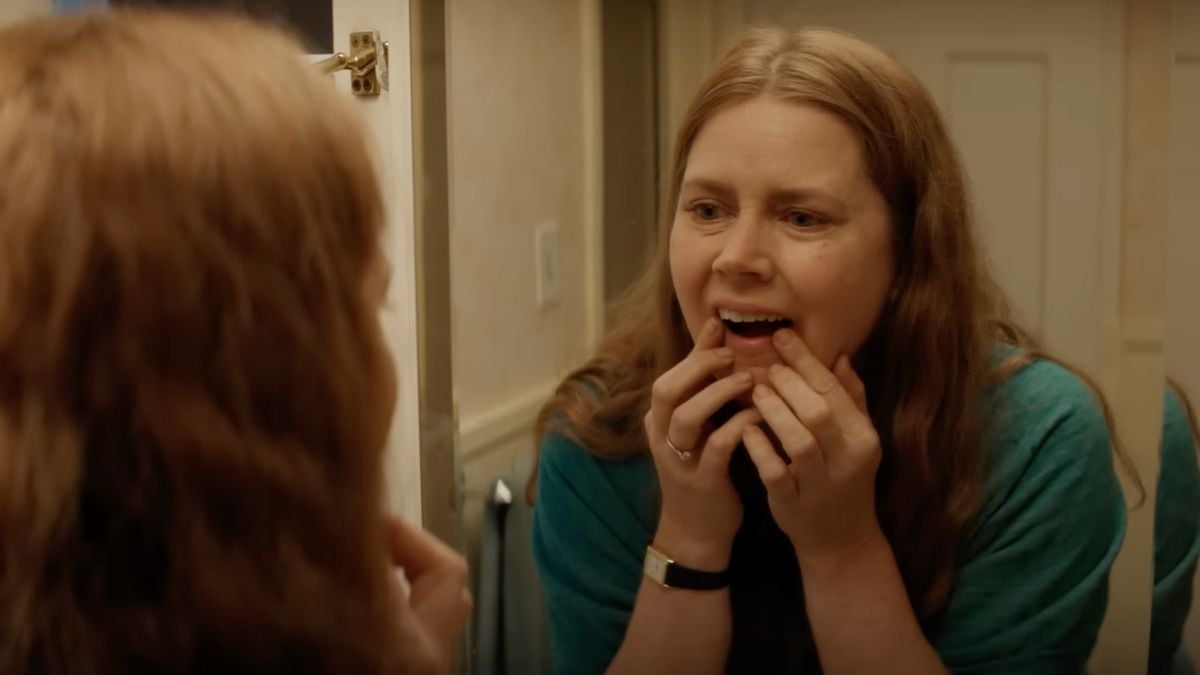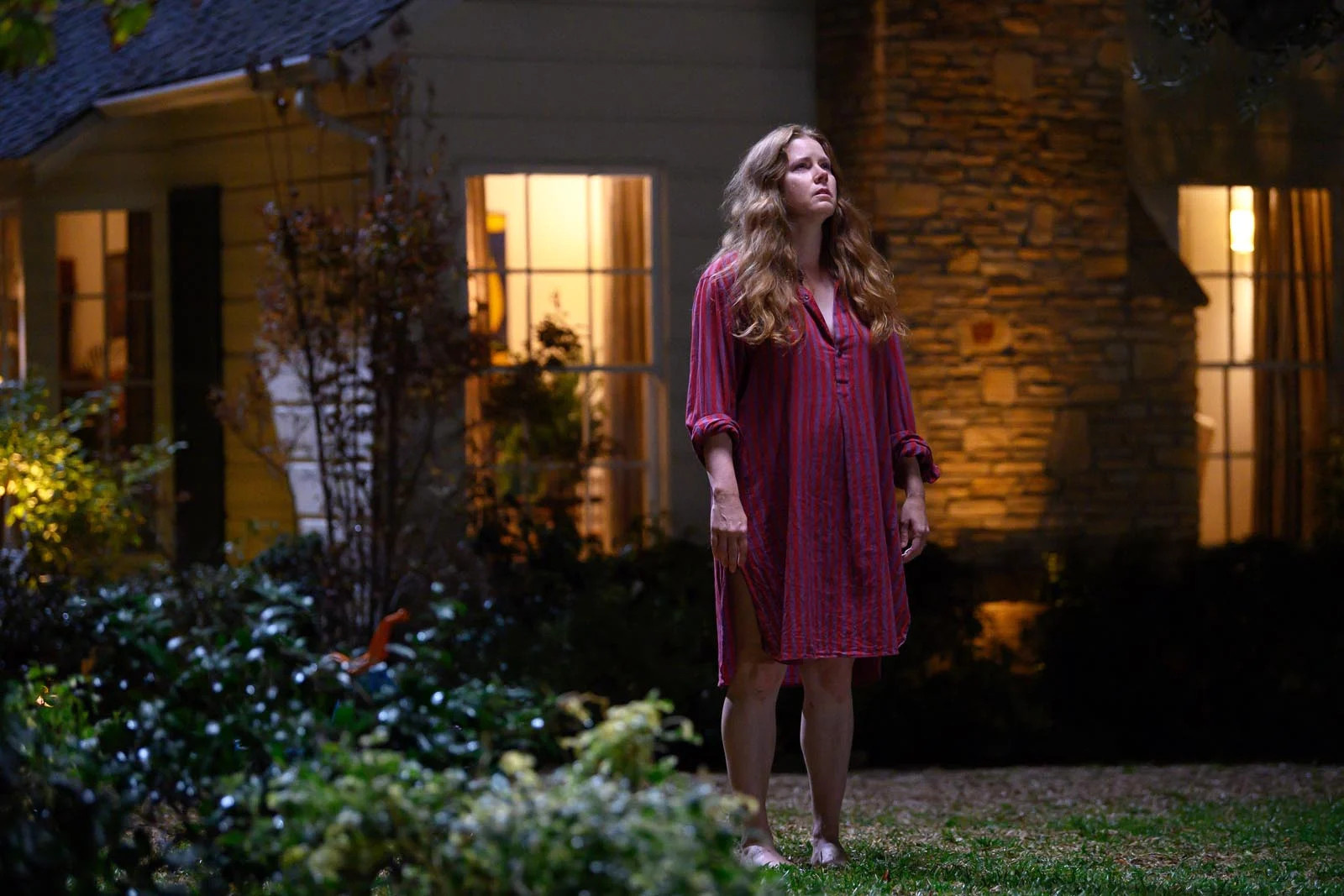NIGHTBITCH. Motherhood is a Bitch [REVIEW]

Parenthood, and especially motherhood, has been portrayed in countless films to date. Motherhood as an adventure, as a goal, as a challenge, as an ideal, and even as a nightmare—these are just a few of the visions we’ve seen on screen. Is there anything more interesting to add to this set? Likely, new variations will keep appearing as long as the experience of having children remains part of humanity—which is to say, probably for a very long time. In Marielle Heller’s new film (“A Beautiful Day in the Neighborhood”), starring Amy Adams, we get an unexpectedly rare portrayal of motherhood—and, more broadly, parenthood—as a primal, atavistic force.
From the first scene, “Nightbitch” immerses viewers in the whirlwind of life for a mother raising a young son full-time. When she meets an old coworker in a grocery store, Adams’ character delivers a passionate speech in response to a casual question about “whether it’s wonderful to be home with a child all day,” detailing how motherhood drains and robs her of more and more aspects of her life. But wait—that’s only a vision, an imagined scenario that the woman would like to say, but doesn’t. This will be the rhythm of “Nightbitch”, as realistic sequences blend with hallucinations, imaginings, and visions born from the exhausted mind of a mother. Watching her caught in the endless cycle of cooking, cleaning, walking, reading stories, and local playdates, we get a sense of how it feels for an ambitious artist who has abandoned her career to care for her son around the clock. This setup is what the filmmakers need to introduce their unique narrative twist.

Beyond the almost entirely realistic portrayal of a mother’s exhausting daily life (a judgment on how accurate it is I’ll leave to all the parents out there), Heller also gives us an eerie horror twist, quickly introducing an unsettling element of physical transformation in the main character. At first, strange hair appears in unusual places, followed by odd lumps, changes in her teeth, and heightened senses. It doesn’t take long to deduce that the protagonist is transforming into a dog. Specifically, a female dog, as the title “Nightbitch” suggests. This metamorphosis is underscored when she finds a book on mythical connotations of femininity and follows the path it describes—a path of primal instincts embedded in the experiences of gender and parenthood.
The metaphysical core of “Nightbitch” is accompanied by a less veiled critique of social structure, rooted in real-world issues. Heller unflinchingly comments on societal pressures and the concept of motherhood that forces women into passive, disempowered roles, along with the lack of systemic support (a uniquely American issue, though it also resonates in Europe with its social support systems) and the accepted gender inequality in the shared burden of raising children. The film pleasantly surprises with a storyline involving the husband (played by Scoot McNairy), who, though initially fitting the mold of a typical 1950s working husband, undergoes his own journey, offering a nuanced depiction of fatherhood. Still, it’s the figure of the mother that takes center stage, as she becomes, quite literally, an animal—a semi-mythical beast that straddles the line between humanity and primal instincts.

Amy Adams shines in the challenging role of a mother teetering on the edge of exhaustion and sanity, gradually embracing her newfound identity as a “mother-dog.” Adams navigates the film’s tone deftly, even with a theme verging on body horror, which plays out more in the realm of grotesque. Admittedly, some scenes involving visions, primitive instincts, or animal transformations in “Nightbitch” occasionally cross the line into unintended humor, sometimes brushing up against self-parody through campy execution. However, these are isolated stumbles in an otherwise well-handled balance of realism and fantasy, with most of the humor being intentional. The absurdity of the film’s premise paradoxically lightens the psychological weight of a story about struggling with the role of a mother, creating an unusual yet intriguing effect.
In the cultural discourse on motherhood, “Nightbitch” situates itself somewhere between a critical stance that depicts motherhood as social oppression and physical struggle and an affirmation of motherhood as a deeply physical and emotional experience. The burdens of having children, along with the possibility of finding meaning and even a certain magic in it, blend in Heller’s film into a complex vision that certainly aims for wholeness. With Adams’ help, Heller tries to capture every aspect, every possible first-person perspective on motherhood, even aiming for insightful conclusions. The effect is intense and certainly memorable. Although “Nightbitch” falls just short of greatness, it stands as one of the more interesting attempts to tackle this universal theme.

